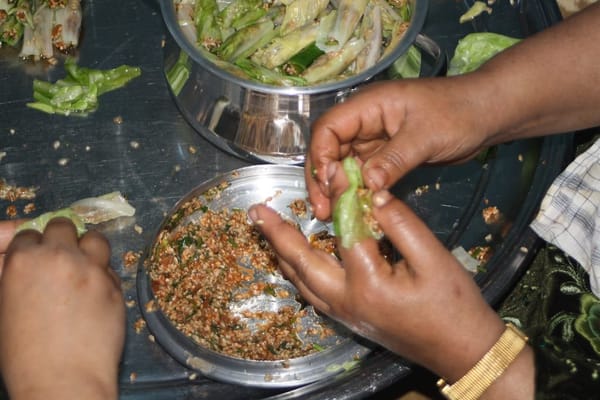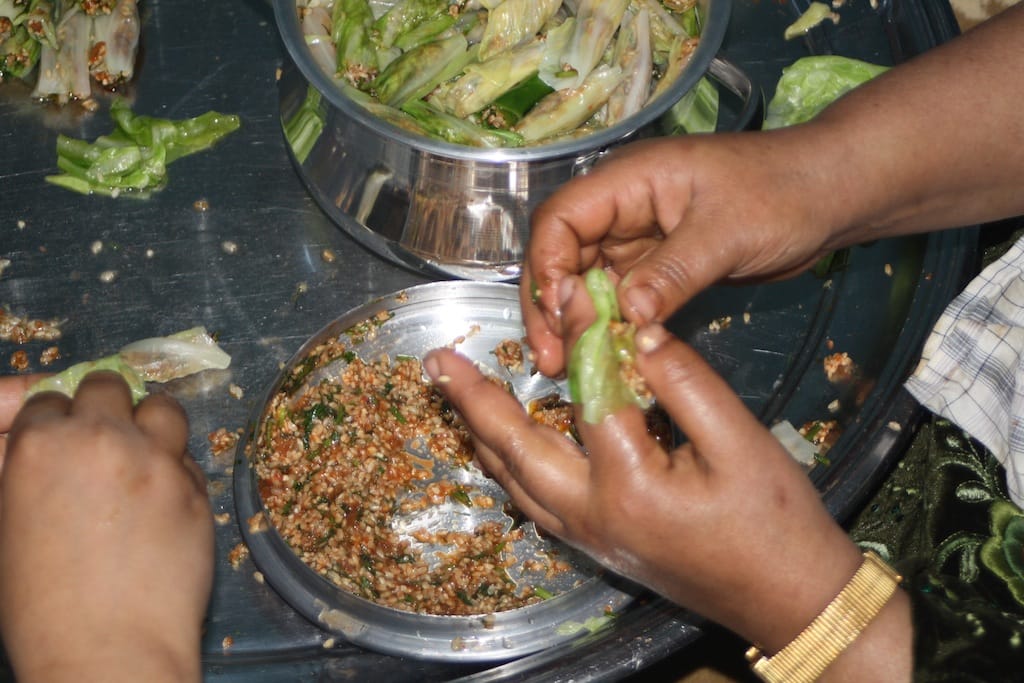The Humble Tomato


In early February 2011, shortly after the beginning of the January 25 revolution that toppled Husni Mubarak, I made a phone call to a friend in an informal area of Cairo. I wanted to check on her wellbeing, and was interested to hear her perspective on reports that some of the thugs hired by the government to harass protesters in Tahrir Square were coming from her neighborhood. The first thing my friend wanted to talk about, however, was the dramatic rise in the price of tomatoes. “Twelve pounds a kilo! Can you imagine?”

Twelve Egyptian pounds, roughly $2 at the time, was indeed a steep hike over the normal price, which is generally in the range of 1-3 pounds per kilo. But the inflation was not, in fact, difficult for me to imagine, as prices had soared to similar heights six months earlier while I was living in Cairo. Neither was it difficult to imagine the impact on the diets and daily lives of poor families in Egypt. The average Egyptian household spends 40.6 percent of its income on food, a share that increases to more than 50 percent in the poorest households, according to a report published by the UN World Food Program and the Egyptian Central Agency for Public Mobilization and Statistics. In the conversation with my friend, the tomato functioned as shorthand for the difficulties of life at an uncertain moment, a kind of low-tech economic indicator of precarity.
A common joke uses tomato sauce as a reference point for the country’s political difficulties as well. “Law nahr al-Nil ba’a salsa, mish haykaffi al-kusa illi fiki ya Masr (Even if the Nile became tomato sauce, it wouldn’t be enough for all the zucchini in Egypt).” Zucchini, or kusa, is often made into mahshi, stuffed with rice and cooked in tomato sauce, a popular meal for those who work hard to stretch their food budgets. Kusa is also a gloss for nepotism and corruption, the joke being that the problem is so endemic that a river of tomato sauce could not cover it up.
Over the last several years, tomatoes have frequently figured as mediums of Egyptian political sentiment as one dynasty folded and others struggle to be born. There was the kerfuffle in 2012 over a Facebook post by a salafi group warning that the tomato is a Christian fruit because, when cut in half, its insides resemble a cross. It was another nail in the coffin of rational thought among the religiously oriented, or so argued those opposed to the rise of the Muslim Brothers and other religious parties. “These people,” it was said, even cast sectarian aspersions on the prosaic tomato! Then there were the rumors that Israeli tomatoes in the Egyptian market were poisoned with high concentrations of solanine, a naturally occurring glycoalkaloid in plants in the nightshade family. The story started, it seems, with the idea that genetically modified seeds from Israel were being smuggled in through Gaza. Last, but certainly not least, were the tomatoes and shoes thrown at Secretary of State Hillary Clinton during her summer 2012 visit to Egypt by people who blamed the US for supporting the Muslim Brothers during their short and contentious time in power. Clinton brushed aside the intentions behind those tomatoes and instead lamented the waste of food. The humble tomato sure gets around.
Price fluctuations predate the January 25 revolution and had a hand in creating its conditions of possibility. At the end of Mubarak’s reign, the regime was tinkering with the Egyptian economy, with the mastermind thought to be heir apparent Gamal Mubarak, who was shifting away from the caution of his father’s long-time cronies. Food price increases were part and parcel of the new economic plan, which had precarity for the poor at its neoliberal heart. There were fewer and fewer crumbs falling from rich tables to keep the poor quiescent. A series of crises, reports the World Food Program’s Egypt representative, GianPietro Bordignon, made it more difficult for households to find sufficient food starting in 2005. The percentage of Egyptian households facing food insecurity rose from 14 percent in 2009 to 17 percent in 2011.
Nowadays, President ‘Abd al-Fattah al-Sisi is working hard to solidify his own power, and doing that means feeding a whole new system of loyalty. Even if the wealthy players are more or less the same, the object of their devotion is new, so there’s a lot of money going around for building and contracting projects for the military and its affiliated businessmen. While the big players are eating so voraciously, there just aren’t enough crumbs for the poor. So, for the time being, it’s going to be harder for my friend and her neighbors to afford a mahshi dinner.








